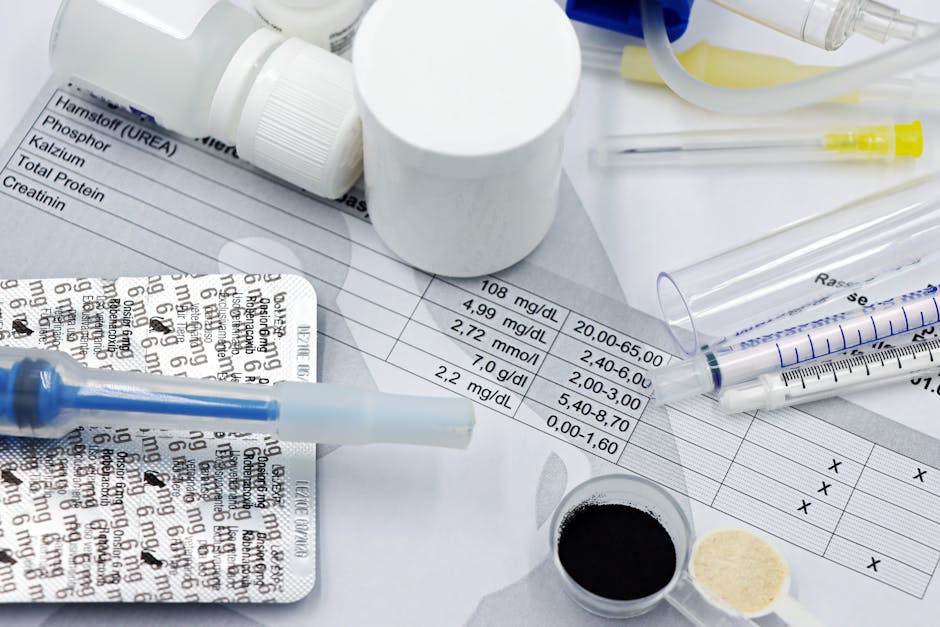The Basics: What Are Pet Supplements?
Pet supplements are quickly becoming a staple in many households, but what exactly are they—and how are they different from the food you’re already giving your pet? Let’s break it down.
What Counts as a Pet Supplement?
Pet supplements are extra nutritional products designed to support specific aspects of a pet’s health beyond what they get from a standard diet. These are not medications, but they can play a supportive role in your pet’s wellness.
Common types include:
- Vitamins and minerals: Such as vitamin E, vitamin C, or calcium
- Joint support: Glucosamine, chondroitin, and MSM for mobility and arthritis relief
- Probiotics: For digestive health and immune support
- Omega-3 fatty acids: Mostly fish oil, helpful for coat and skin health
- Antioxidants and plant-based extracts: Like turmeric or green tea for inflammation and immune balance
How Are Supplements Different from Regular Pet Food?
While commercial pet foods are formulated to meet basic nutritional needs, supplements go a step further.
- Pet food offers essential nutrients in balanced proportions.
- Supplements target specific concerns or fill in nutritional gaps—especially in pets with unique diet plans, age-related needs, or chronic conditions.
Think of pet food as the foundation, and supplements as the extra reinforcement when needed.
Why More Pet Owners Are Reaching for Supplements
The pet supplement industry is growing—and fast. From joint care to calming chews, pet owners are increasingly curious about enhancing their pets’ well-being.
Key reasons for growth include:
- Increased awareness of pet wellness and preventive care
- Aging pet populations, especially dogs with mobility issues
- Rise in homemade and limited-ingredient diets that may lack certain nutrients
- A growing belief that pets deserve similar health support as humans
Pet parents are more informed than ever, and they’re seeking solutions that go beyond the food bowl. Still, it’s important to understand that not every pet needs supplements—and that’s where guidance matters.
When Supplements Make Sense
Not every pet needs a supplement—but for some, it makes a real difference.
Older pets, for example, face a few tough age-related challenges. Arthritis makes stairs a struggle. Digestion slows down. Skin loses bounce. In these cases, targeted supplements like glucosamine, omega-3s, or digestive enzymes can support aging systems and improve comfort without overloading them with meds.
Then there are pets managing specific conditions. Dogs with kidney disease, cats with food sensitivities—it’s not one-size-fits-all. A supplement might step in when a standard diet falls short or needs fine-tuning. It’s not about fixing everything with a tablet, but filling real nutritional gaps.
Speaking of gaps, plenty of pet parents now go the DIY route with food—think raw, homemade, or limited-ingredient diets. Done right, great. But they can lack essential nutrients like taurine, calcium, or certain B vitamins. That’s where supplements come in—to round things out, not reinvent the wheel.
And here’s the vital line: vet-prescribed vs. over-the-counter. Just because it’s sold online doesn’t mean it’s safe or useful. Supplements from your vet are tailored, dosed properly, and based on actual needs, not trends. Store-bought options? Some are solid, others are fluff. The difference could come down to testing, sourcing, or filler ingredients you’d rather skip.
In the end, supplements are tools. Not magic. Not mandatory. Just useful—when used with care and context.
Overhyped or Essential? Sorting Fact from Hype
Not all pet supplements are created equal, and science is starting to draw firmer lines between what genuinely helps and what’s just smart marketing. Glucosamine and chondroitin, for example, have shown some evidence in easing joint pain in older dogs—though the effects are mild and often take weeks to kick in. Probiotics can support gut health, especially after antibiotics or digestive issues, but quality and strain specificity matter. Omega-3s (from fish oil) get a thumbs-up for skin health and inflammation, particularly in dogs with chronic itchiness.
Then there are the hype-heavy players: CBD-infused treats, “miracle” mushroom blends, vague immune boosters. Many of these supplements ride trends, not research. Preliminary studies may exist, but strong, peer-reviewed data backing long-term safety and effectiveness is often missing.
As for labels, don’t get dazzled by buzzwords like “natural” or “vet-approved.” Look for products with third-party testing or certifications like NASC (National Animal Supplement Council). Red flags include proprietary blends with no ingredient breakdown, mega-doses of vitamins, and fillers like artificial dyes. If the label reads more like marketing copy than a clear ingredient list, it’s probably not worth the risk.
In short: some supplements help—but only if your pet needs them, the ingredients are backed by real science, and the product is clean. Your vet should always be part of that equation.
Talking to Your Vet Comes First
Pet owners love to help—but when it comes to supplements, guesswork can do more harm than good. DIY supplementing might seem harmless, but it skips over critical information like existing medical conditions, medication interactions, or dietary imbalances you might not even know are there. Giving the wrong supplement can throw off nutrient levels, overload a pet’s system, or mask symptoms that vets need to see.
That’s why the first step is a conversation with your veterinarian. Be clear about what you’re considering, and why. A good vet won’t just say yes or no—they’ll walk you through whether a supplement is needed, which type to choose, and how it fits with your pet’s health history.
Before making any changes, your vet will often recommend basic blood work and review your pet’s current diet. They’re looking for nutrient gaps, absorption issues, or early signs of dysfunction. That testing isn’t overkill—it’s the baseline that keeps pets safe.
Bottom line: even the best supplement can backfire if you don’t have the full picture first. Partnering with your vet turns guesswork into strategy.
Natural Food-Based Alternatives
When addressing your pet’s health, sometimes the right nutritional adjustments can eliminate the need for supplements altogether. A well-balanced, species-appropriate diet can naturally offer many of the benefits associated with popular supplements—if you know what to look for.
Rethinking the Role of Diet
Not all pets require supplementation, especially if their everyday meals provide the nutrients they need. Many common health concerns can often be mitigated or supported by food-based solutions.
Dietary improvements that may reduce the need for supplements:
- Rotating high-quality, balanced meals to prevent nutritional gaps
- Adding omega-rich proteins like sardines or salmon for skin and coat health
- Incorporating digestible fiber sources (pumpkin or sweet potato) for gut support
- Using bone broth for hydration, joint support, and palatability
Real Food Add-Ins That Make a Difference
Whole foods can be powerful allies in promoting overall wellness when added in moderation to a pet’s regular diet.
Smart whole-food additions include:
- Fresh blueberries or carrots: Natural antioxidants and fiber
- Plain cooked eggs: High in protein and healthy fats
- Fermented foods (like unflavored kefir or plain yogurt): Support digestion with probiotics
- Dark leafy greens (lightly steamed): Add trace minerals and vitamins without weight gain
These additions not only contribute to nutritional diversity but also offer flavor variety that can encourage picky eaters.
Less Is Often More
More nutrients aren’t always better—especially when given without consideration for the pet’s total intake. Over-supplementation can lead to imbalances or even harm.
Why nutritional balance matters:
- Nutrient overload (such as excess calcium or vitamin D) can cause health issues
- Some nutrients interfere with the absorption of others when overprovided
- Balance is key for long-term health, not just for managing symptoms
Before adding anything new—whether food or supplement—talk to your vet to ensure your pet’s diet is serving their specific needs. Nature often provides everything your pet needs; you just have to know where to look.
How to Choose the Right Supplement (if Needed)
If you’re going to give your pet a supplement, it needs to earn a spot in their bowl. That starts with picking a reputable brand—one that invests in third-party testing. Labels can say anything, but verified purity and potency separate solid products from noise. Look for NSF, USP, or NASC seals. These organizations don’t mess around.
Dose isn’t one-size-fits-all. A supplement that works for a 70-pound golden retriever could overwhelm a 10-pound cat. Breed, age, and health status matter too. Always follow species-specific guidelines and double-check with your vet. Underdosing does nothing. Overdosing can harm. Precision isn’t optional.
Ingredients tell another story. Some products are packed with unnecessary fillers, artificial colors, or sugar-based flavorings that serve no real benefit. Excipients like cellulose or silica might be fine in small amounts, but the less-is-more rule applies here. If the ingredients list reads like a chemistry exam, walk away.
Bottom line: the right supplement is clean, correctly dosed, and made by a brand that’s transparent about testing. Your pet’s health isn’t the place for guesswork.
Conclusion: Thoughtful, Not Trendy
Supplements can absolutely support your pet’s health—but that doesn’t mean every animal needs them, or needs them all the time. Just like with humans, more isn’t better. Giving your dog joint chews or your cat probiotic powder won’t magically fix poor diet or lack of exercise. Supplements are support tools, not solutions in a bottle.
What works for one pet might do nothing for another. Age, breed, health status, and even daily routine matter. This is why copy-pasting advice from social media or your neighbor’s dog owner group can backfire. One-size-fits-all suggestions, even if well-meaning, can miss serious details.
The better approach? Look at the big picture. Build a balanced diet, make lifestyle adjustments when needed, and talk with your vet before adding anything to the mix. Proper wellness is slow, steady, and customized—not hyped and fast-tracked.
Want to dig deeper into pet nutrition and common health issues? Check out Common Pet Health Issues and Nutritional Solutions.


 Annelina Pierceric is a dedicated author at pethubnest She shares practical insights on pet care, exploring new ways technology can support healthier and happier lives for pets.
Annelina Pierceric is a dedicated author at pethubnest She shares practical insights on pet care, exploring new ways technology can support healthier and happier lives for pets.


